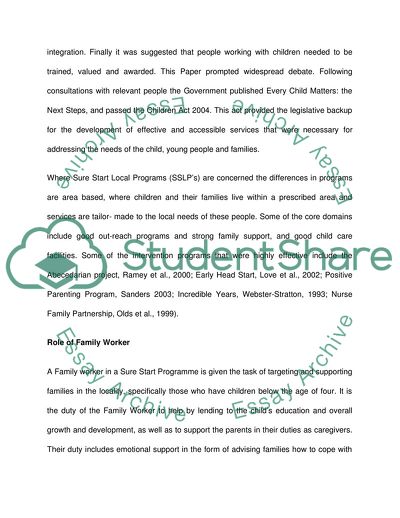Cite this document
(Role of Family Worker Literature review Example | Topics and Well Written Essays - 2250 words, n.d.)
Role of Family Worker Literature review Example | Topics and Well Written Essays - 2250 words. Retrieved from https://studentshare.org/social-science/1719160-an-evaluation-what-is-the-role-of-a-family-worker-at-sure-start-children-centre
Role of Family Worker Literature review Example | Topics and Well Written Essays - 2250 words. Retrieved from https://studentshare.org/social-science/1719160-an-evaluation-what-is-the-role-of-a-family-worker-at-sure-start-children-centre
(Role of Family Worker Literature Review Example | Topics and Well Written Essays - 2250 Words)
Role of Family Worker Literature Review Example | Topics and Well Written Essays - 2250 Words. https://studentshare.org/social-science/1719160-an-evaluation-what-is-the-role-of-a-family-worker-at-sure-start-children-centre.
Role of Family Worker Literature Review Example | Topics and Well Written Essays - 2250 Words. https://studentshare.org/social-science/1719160-an-evaluation-what-is-the-role-of-a-family-worker-at-sure-start-children-centre.
“Role of Family Worker Literature Review Example | Topics and Well Written Essays - 2250 Words”. https://studentshare.org/social-science/1719160-an-evaluation-what-is-the-role-of-a-family-worker-at-sure-start-children-centre.


